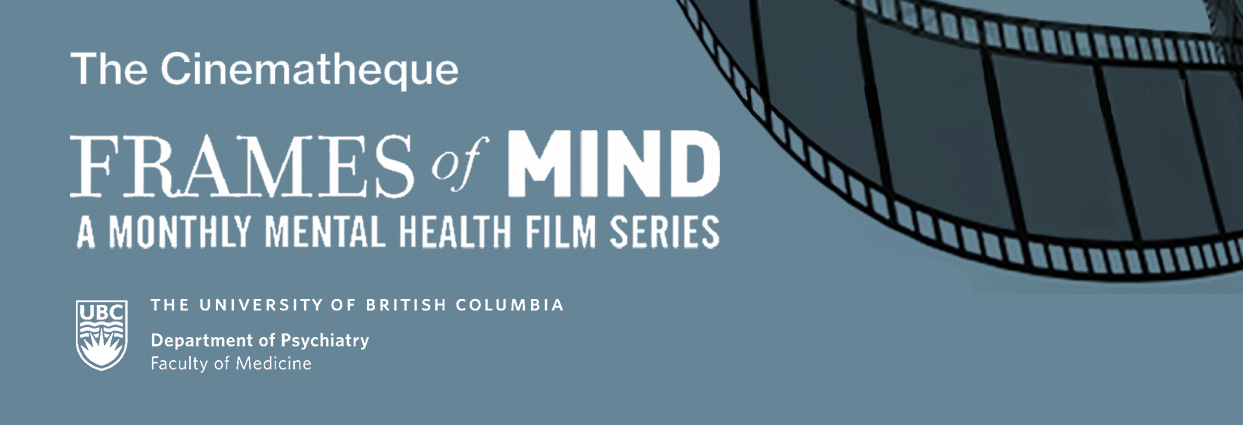Clinical Assistant Professor, UBC Department of Psychiatry
Email: suneina.mohan@vch.ca
Clinical Assistant Professor, UBC Department of Psychiatry
Email: suneina.mohan@vch.ca

Congratulations to UBC Department of Psychiatry clinical instructor Dr. Clara Westwell-Roper on being awarded BC Children’s Hospital Research Institute’s Outstanding Achievement by a Sub-specialty Resident or Fellow Award!
Dr. Westwell-Roper is a recent graduate of the Department’s Resident Subspecialty Program in Child and Adolescent Psychiatry. Her postdoctoral research with Dr. Evelyn Stewart explores the factors contributing to comorbidity between immune-related conditions and psychiatric disorders such as obsessive-compulsive disorder (OCD). Dr. Westwell-Roper is particularly interested in the relationship between early-life events and immune function across the lifespan, as well as factors influencing families’ experiences of comorbid physical and psychiatric symptoms. From a clinical perspective, her focus includes consultation-liaison psychiatry, psychotherapy, and support for families facing severe mental illness.
Join us in congratulating Dr. Westwell-Roper on this well-deserved award!

A monthly film series promoting professional and community education on issues pertaining to mental health and illness. Presented by The Cinematheque and the Institute of Mental Health, UBC Department of Psychiatry. Screenings are generally held on the third Wednesday of each month at The Cinematheque, 1131 Howe St, Vancouver, BC.

Vancouver Premier
“Beguiling … One of the finest Japanese independent films of the past few years.”
– Patrick Brzeski, The Hollywood Reporter
After 71-year-old Yohji, a retired professor with a mysterious past, is diagnosed with dementia, his son Takashi is forced to reconcile not only with his father’s newly intensified illness, but also with the nuances of their fractured relationship. Estranged from his father for nearly twenty-five years after the divorce of his parents, Takashi has built a career as an actor in Tokyo—a path that seemingly disappoints his overly critical father. After Yohji is sent to live in a care home, his second wife Naomi is nowhere to be found. In a fog of distorted memories and paranoia, he tells his son that she committed suicide, leading Takashi on a quest for the truth of what happened. Intercut with flashbacks and set against the lush landscape of Omuto in southern Japan, Chika-ura’s sophomore feature offers carefully composed cinematography and measured performances to deliver a suspenseful yet contemplative family drama.
In Japanese with English subtitles

“A moving drama … The story of Great Absence is something of a mystery, structured quite magnificently … In the end, [it] contains the grace that arises from a great struggle.” Alissa Wilkinson, The New York Times
Post-screening discussion with Dr. Takashi Inoue, a board-certified child and adolescent psychiatrist from Japan. Dr. Inoue studied at the University of Tokyo Faculty of Medicine and completed his residency in psychiatry in Tokyo. After a visiting fellowship at BC Children’s Hospital in Vancouver, BC, Dr. Inoue is now based in Calgary, where he practices as a psychiatrist.
Moderated by Dr. Paige Zhang, series assistant-director and an emergency and consultation-liaison psychiatrist at Vancouver General Hospital.

Clinical Instructor, UBC Department of Psychiatry
Email: aida.raissi@vch.ca
Clinical Instructor, UBC Department of Psychiatry
Email: kay.fagbuyi@fraserhealth.ca
Clinical Instructor, UBC Department of Psychiatry
Clinical Instructor, UBC Department of Psychiatry

Congratulations to Dr. Daniel Vigo, who has been promoted to the rank of Associate Professor with Tenure!
Dr. Vigo has been a member of the Department since 2017, having first been offered a two-year clinical fellowship. In 2019, following his clinical fellowship, Dr. Vigo was recruited to the UBC Department of Psychiatry at the rank of Assistant Professor (Term), then appointed as an Assistant Professor, Tenure Track, jointly with the UBC School of Population and Public Health (SPPH) in 2020. He holds a Lic. in Clinical Psychology (Bachelor’s/Master’s degree equivalent) and Medical Degree from the University of Buenos Aires and completed his Doctor of Public Health at Harvard University. Prior to joining UBC as a full-time faculty member, he held academic faculty positions as a Lecturer at Harvard Medical School, and as an Assistant Professor in the Faculty of Health Sciences at Simon Fraser University from 2017 to 2019.
Dr. Vigo is a psychiatrist, clinical psychologist, and public health specialist. Besides his role at UBC, he is a Lecturer at Harvard Medical School, an Advisor to PAHO and WHO, as well as the Chair of the Services and Policy Workgroup of the WHO-World Mental Health Surveys Initiative. He is also the Regional Lead Psychiatrist for Assertive Community Treatment for the Province of BC and the incoming Editor-in-Chief of the International Journal of Mental Health Systems. In June of this year, he was also appointed as BC’s Chief Scientific Advisor for Psychiatry, Toxic Drugs & Concurrent Disorders by BC Premiere David Eby.
He has worked in clinical, research, teaching, and leadership positions across both the public and private sector. In these roles, he has published peer-reviewed articles, book chapters, and reports on public health, health systems, global mental health, psychiatric epidemiology, psychopharmacology, psychotherapy, and e-mental health. Dr. Vigo also leads several projects in BC and globally, including on E-Mental Health, prediction of risk of adverse mental health and substance use outcomes, and needs-based planning for mental and substance use disorder services. More information can be found at Dr. Vigo’s Mental Health Systems and Services Laboratory webpage.
Please join us in warmly congratulating Dr. Vigo on his well-deserved promotion!

The Department is deeply saddened to share the news that Dr. Karen Trueman passed away on November 16, 2024. Dr. Trueman worked with the Interior Health Authority as a psychiatrist at Kootenay Boundary Regional Hospital and joined the UBC Department of Psychiatry as a Clinical Instructor in 2014.
Dr. Trueman completed both her Medical Degree and Residency programs with UBC. She was in the first graduating class from the UBC-UNBC Northern Medical Program, educating physicians in northern and rural communities to serve the local populations. She was then among the first in her postgraduate program to complete a psychiatry residency in Victoria, in 2013. After graduation, she began practicing in Trail, BC, where, during the COVID-19 Pandemic, she initiated a tele-psychiatry project for Kootenay Boundary Regional Hospital to address the pandemic restrictions and changing needs in rural communities. She also selflessly committed herself to ALS research at the University of Alberta, travelling from Rossland, BC to Edmonton, Alberta every three months, despite her continuous loss of function during her own battle with the disease.
Dr. Trueman will be remembered as a compassionate and respected psychiatrist within the Interior Healthy Authority who dedicated eleven years of her life to helping her patients, right up until two months before her passing. She will be sorely missed by her young family, friends and colleagues. The UBC Department of Psychiatry wishes to send our sincerest condolences to the family and loved ones of Dr. Trueman during this profoundly difficult time.
If you wish to read her full obituary or offer support in honour of Dr. Trueman, please do so by visiting her Memorial Page here.
Congratulations to Dr. Trisha Chakrabarty (PI) and Dr. Jennifer Coelho(PI) recipients of Convening and Collaborating (C2) Awards and to Dr. Fidel Vila-Rodriguez (PI) recipient of a Reach Award from Michael Smith Health Research BC!

Dr. Trisha Chakrabarty is an Assistant Professor with the UBC Department of Psychiatry, Michael Smith Foundation for Health Research health professional investigator, and consultant psychiatrist at the Mood Disorders Centre of Excellence. Her research project with co-lead Dr. Tracy Windsor (DMCBH), XR Technology to Support Students with Mood Disorders: Co-Developing a Research Agenda, looks at how Extended reality (XR) can address some of the barriers of mood disorders (depressive and bipolar disorders) that affect many Canadian post-secondary students and can severely impact functioning.

Dr. Jennifer Coelho is a Clinical Associate Professor with the UBC Department of Psychiatry, lead for the BC Eating Disorders Research Cluster, and Psychologist at BC Children’s Hospital. Her project with co-lead Dr. Kim Williams, Early Intervention for Eating Disorders in British Columbia: Co-Development of a Research Strategy, considers the surge in eating disorders during the COVID-19 pandemic which contributed to a workforce crisis, and looks at how the innovative early intervention model in general mental health settings which is being developed for the Canadian context shows significant promise for early intervention.

Dr. Fidel Vila-Rodriguez is an Associate Professor with the UBC Department of Psychiatry and Director, NINET Labs whose research focuses on translational research that bridges our understanding on the neurobiology of psychiatric disorders with the clinical applications of this knowledge. His project, Enhancing Public Understanding of Interventional Brain Medicine through Lay Abstracts and Social Media Education, aims to create extended lay abstracts for approximately 80 research papers produced by his lab that focus on Interventional Brain Medicine technologies. These abstracts will translate complex research outcomes into easily understandable summaries for non-specialists
View the full list of C2 and Research awardees and learn more about their research project, here…